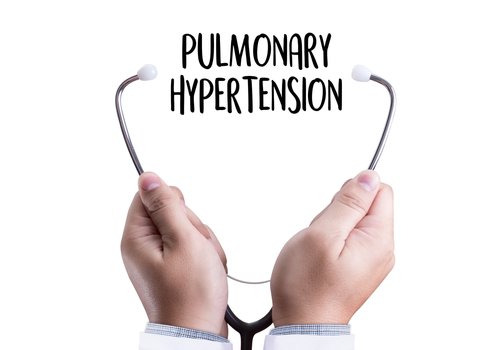Remodulin Seen to Safety Treat Man with Severe PH, Chronic Kidney Disease in Case Study

A subcutaneous infusion of Remodulin (treprostinil) was an effective and tolerable treatment against severe pulmonary hypertension associated with chronic kidney disease in a patient on hemodialysis, according to a case report.
The case study “Subcutaneous treprostinil was effective and tolerable in a patient with severe pulmonary hypertension associated with chronic kidney disease on hemodialysis” was published in the journal of Heart & Lung.
Pulmonary hypertension (PH), or high blood pressure in the main artery that carries blood from the right ventricle to the lungs, is a serious complication in people with chronic kidney disease on hemodialysis (CKD-HD).
Vasodilators commonly used to treat PPH — like or an endothelin receptor antagonist in combination with a phosphodiesterase 5 inhibitor — are reported to be effective in treated PH associated with CKD-HD. But the long-term effects of vasodilators that are prostacyclin analogues, like Remodulin, on CKD-PH have not been studied in clinical trials.
Recently it has been reported that treprostinil, a subcutaneous formulation of prostacyclin, improves exercise capacity, hemodynamics and survival in patients with severe pulmonary arterial hypertension (PAH).
In this study, a 57-year-old man was admitted to a hospital with presyncope (muscular weakness, and feeling faint) and dyspnea (shortness of breath) during exercise. The patient had a horseshoe kidney, i.e., a partial or complete fusion of the two kidneys, and end-stage CKD-HD treated via an arteriovenous fistula for 22 years.
At admission, he was diagnosed with severe PH associated with CKD-HD. Cardiac catheterization revealed a high pulmonary arterial pressure (PAP) and pulmonary vascular resistance (PVR) — 60/19/30 mmHg and 5.9 w.u.
A six-month therapy with Tracleer (bosentan), a dual endothelin receptor antagonist, and Revatio (sildenafil), a phosphodiesterase 5 inhibitor, failed to ease the symptoms. Doctors instead began a nine-month treatment with subcutaneous Remodulin (50 ng/kg/min).
Following this treatment, the man showed normalized hemodynamics (PAP: 25/4/13 mmHg and PVR: 1.9 w.u.) and no symptoms during exercise, and without any side effects.
According to 2015 guidelines, “treprostinil and epoprostenol [another prostacyclin analogue] have been recommended for the treatment of severe PAH. However, a central venous catheter may increase the risk of sepsis in CKD patients dialyzing through arteriovenous fistula,” the researchers noted in the study. “It is therefore reasonable to avoid the intravenous epoprostenol in these patients.”
Instead, the team suggested that subcutaneous infusion of Remodulin can be used as an alternative therapy for these patients, but added “[t]his is the first report that subcutaneous treprostinil was very effective and tolerable in a PH patient with CKD-HD.”
Remodulin is the brand name for treprostinil for subcutaneous infusion; in its oral form it is known as Orenitram, and as Tyvaso for inhalation.







